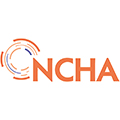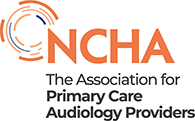22 December 2023
NCHA member update – 22 December
This month:
- NCHA opening hours over the festive period
- HCPC publishes preceptorship principles
- Dementia and hearing loss: have your say
- Other hearing loss and dementia research
- Government launches British Sign Language GCSE
- Newborn genetic test to prevent hearing loss
- RNID chosen as biotech charity partner
- Recruitment begins in sudden hearing loss trial
- Other sector news
- Health policy news
NCHA opening hours over the festive period
The NCHA offices will be closed from 25 to 29 December (inclusive) and on New Year's Day.
Please note that members can still access out-of-hours support during this period.
Read further details.
HCPC publishes preceptorship principles
The Health and Care Professions Council has published its Principles for Preceptorship, aiming to support newly qualified clinicians or those who are changing roles.
The HCPC described high-quality preceptorship as "a vital component in the delivery of safe, compassionate and high-quality care" and essential for workforce planning and staff retention.
The principles state that preceptorship should:
- Be embedded in the organisation's systems
- Comply with equality legislation
- Provide opportunities for employees to develop their careers
- Promote a culture of learning, self-reflection and safe practice.
The Council stresses that preceptorship should not re-test clinical competence but empower employees to reflect on their role and identify the support they need to develop professional confidence.
Dementia and hearing loss: have your say
A research partnership on deafness and hearing loss is calling for feedback from clinicians and members of the public to help guide future research on the connection between dementia and hearing loss.
Professionals, patients and the wider public can get involved if they:
- Have memory problems, such as mild cognitive impairment or dementia
- Have hearing loss, tinnitus, or sensitivity to sound
- Are part of the deaf community using sign language
- Are a supporter, relative, friend, or carer of any of the above
- Are a member of the public
- Are a health and social care professional.
The survey is part of a project by the NIHR Nottingham Biomedical Research Centre, Alzheimer's Research UK, and the RNID. It informs the James Lind Alliance Co-existing Dementia and Hearing Conditions Priority Setting Partnership.
Other hearing loss and dementia research
In other dementia research, The Lancet has retracted the paper 'Association between hearing aid use and all-cause and cause-specific dementia: an analysis of the UK Biobank cohort' after the researchers in China informed them of an error introduced in the data analysis, which has rendered their findings unsafe. Read more.
Government launches British Sign Language GCSE
Secondary school pupils can choose BSL as a GCSE subject as early as September 2025.
The Government published the course content after more than a decade of campaigning by Deaf champions and charities to include the subject in the curriculum.
The course will cover BSL's history and teach students to sign effectively.
Newborn genetic test to prevent hearing loss
A neonatal unit in Brighton has started using a simple swab to identify babies who are at risk of hearing loss if treated with a common antibiotic.
The Trevor Mann Baby Unit at the Royal Sussex County Hospital is the second trust in the UK to use the test, which can identify babies with the genetic variant m.1555A>G.
The BBC reported that Gentamicin, an aminoglycoside antibiotic commonly used to treat bacterial infection, can cause irreversible hearing loss in those with the genetic variant.
RNID chosen as biotech charity partner
The BioIndustry Association (BIA) has chosen the Royal National Institute for the Deaf as its charity partner for 2024. The charity said it hoped this would encourage progress towards the first treatments to restore hearing and cure tinnitus.
Recruitment begins in sudden hearing loss trial
Researchers in the US and continental Europe are recruiting people with sudden sensorineural hearing loss for a trial comparing a new drug, AC102, with traditional oral corticosteroid therapy. The medicine will be administered by intratympanic injection. Read more.
- Last chance for employers to respond to the HCPC's English-language proficiency consultation, which closes on 19 January.
- The National Deaf Children's Society rounds up the year's paediatric audiology news, stressing the need for early identification of childhood hearing loss.
- Marshall Chasin, audiologist and researcher, shares with Hearing Health & Technology Matters an audio file that could be used to detect unilateral cochlear dead regions.
- British Airways partners with SignLive to offer BSL customers face-to-face video interpreting services.
- The actor Natasha Ofili talks to Eurogamer about Deaf representation and her experiences of playing Hailey in Marvel's Spider-Man 2 videogame.
GMC to regulate medical associates
The Government is drafting legislation to provide the General Medical Council with powers to regulate physician associates and anaesthesia associates.
The British Medical Association is opposed to the GMC regulating these professions. The BMA has called for a pause in recruitment, based on concerns from doctors that medical associates pose a risk to patients. Many patients are not familiar with the roles and their qualifications, The Guardian reported.
Victoria Atkins, the new health secretary, told i news that physician associates "will support, not replace" doctors.
Junior doctors strike again
Junior doctors resumed their strike action for three days in this month (7am on 20 December to 7am on 23 December 2023), followed by a further six days in the new year (7am on 3 January to 7am on 9 January 2024).
The action follows a stalemate in talks, in which the BMA is calling for a 35% per cent pay rise, whereas the latest government offer is a further 3% on top of the 8% already imposed.
Junior doctors have taken 27 days of industrial action this year and more than a million procedures have been cancelled.

Press enquiries
Media enquiries should be directed to [email protected] or call 020 7298 5110.
We are happy to put you in touch with our expert policy advisers who can comment on a variety of issues.
You can also follow us on Twitter and LinkedIn.

 Your hearing and aural health
Your hearing and aural health  Commissioners and Policymakers
Commissioners and Policymakers  Member support and guidance
Member support and guidance News and views
News and views
 Hearing map
Hearing map
